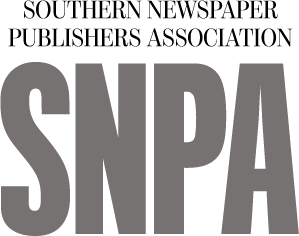Board establishes new test for reviewing employer policies
In this column, I have been predicting for some time that when all three Republican seats of the five-member National Labor Relations Board were filled by President Trump's appointees, the NLRB would begin reversing/overruling some of the Obama Board's more egregious decisions that demonstrated an outright hostility toward employers.
Chairman Philip A. Miscimarra's term expired on Dec. 17, 2017. On Dec. 14 and 15, Chairman Miscimarra went out "with a bang!"
What a difference an NLRB management majority makes! On Dec. 14, 2017, in a 3-to-2 decision involving The Boeing Company, the Board – under the leadership of Chairman Miscimarra – overruled prior precedent that governed whether facially neutral workplace rule policies and handbook provisions unlawfully interfered with employees' rights.
The NLRB has established a new test that overrules the old standard, which tried to determine whether employees would reasonably construe a rule to violate their rights. Under the new standard, if a new rule, reasonably interpreted, would potentially interfere with employees' rights, the Board will evaluate (1) the nature and extent of the potential impact on National Labor Relations Act rights, and (2) legitimate justifications associated with the rule.
The good news is that this case overrules past NLRB cases holding that employers violated the NLRA by maintaining rules requiring employees to foster "harmonious interactions and relationships" or to maintain basic standards of civility in the workplace.
This Boeing decision is a big, important case. Many, including this writer, believe this new case should end the witch-hunts and second-guessing of routine, neutral handbook provisions.
The return of common sense!
Browning Ferris joint employer standard reversed
In a 3-to-2 decision on Dec. 14, the NLRB overruled its 2015 decision in Browning Ferris, which previously made it much easier for the NLBR general counsel and unions to prove "joint employer" status.
Under the reinstated standard, there must be proof that one entity has exercised control over the essential employment terms of another entity's employees, and has done so directly and immediately – rather than indirectly – in a manner that is not limited and routine. This reinstated standard is more compatible with the common law and the legislative history of the National Labor Relations Act.
The Board's new decision, along with Secretary Alexander Acosta's June 7, 2017, withdrawal of the Department of Labor's joint employer interpretation under the Fair Labor Standards Act, indicates that the Trump administration has ended the Obama administration's over-expansive view of joint employer status.
"Community of interest" standard
In a 3-to-2 decision on Dec. 15, the NLRB overruled its controversial Specialty Healthcare decision of 2011. The Board has reinstated the traditional "community of interest" standard for determining whether a bargaining unit sought by a union is appropriate.
Under Specialty Healthcare, a union could petition for a subset of employees in a larger department. If that subset of employees shared a community of interest among themselves – and the employer took the position that the unit was inappropriate and should include others – Specialty Healthcare imposed an overwhelming community of interest standard. This made it much easier for unions to organize small groups and get their "foot in the door" and was a radical departure from NLRB jurisprudence. In the new decision, the overwhelming community of interest standard has been abandoned.
This new case prevents fractured bargaining units. Going forward, unions will have a much more difficult time organizing so-called "small micro-units.
Unilateral changes
On Dec. 15, in a 3-to-2 decision, the NLRB overruled its 2016 DuPont case, which had ruled that an employer violated the National Labor Relations Act by not bargaining with a union over a change that was totally consistent with a long-held past practice.
The new case involved changes an employer had made to healthcare benefits annually from 2001 to 2012. The NLRB determined that, because of this long-established past practice, there was no obligation to give the union notice and an opportunity to bargain before making changes in 2013.
Consistent with Board cases dating back to 1964, this new decision holds that employer actions do not constitute a change requiring bargaining with a union if they are similar in kind and degree with an established past practice consisting of comparable unilateral actions.
The Board held this principal applies regardless of whether a collective bargaining agreement was in effect when the past practice was recreated and no CBA existed when the disputed actions were taken. The Board also stated that the established past practice does not require bargaining, even though it may involve some degree of management discretion. In essence, employer actions taken consistent with past practice are not unilateral changes at all.
The NLRB further decided that it was appropriate to apply the decision retroactively.
This new decision is consistent with victories our firm previously obtained at the NLRB in past practice cases involving the Post-Tribune in Gary, Ind., and The Pantagraph in Bloomington, Ill.
"Quickie" election rule
NLRB Chairman Miscimarra and new Board members Marvin Kaplan and William Emanuel approved the Dec. 13 publication of a Request for Information in the Federal Register asking for public input regarding the NLRB's 2014 "quickie election" rule.
The NLRB's press release on this development asks three questions and states that responses will be accepted from Dec. 13, 2017, to Feb. 12, 2018. Pro-union Board members Mark Gaston Pearce and Lauren McFerran dissented.
The effect of the new election rule has been to dramatically limit the First Amendment communication rights of employers faced with NLRB elections. Prior to the effective date of the 2014 rule, on average, elections were held 42 days after the date of the filing of the election petition. After the implementation of the new rule, the period of time has been cut down to an average of 23 days. This has nearly cut in half the amount of time that management has to develop a campaign and respond to a unionization attempt.
This writer sincerely hopes the NLRB rescinds the 2014 election rule and reverts to the representation elections regulations that were in effect prior to the 2014 election rule's adoption.
Conclusion
Chairman Miscimarra did a great job while in the minority at the NLRB. He wrote brilliant dissents over the last several years, laying the groundwork to reverse many of the bad Obama Board decisions.
With Chairman Miscimarra's term expired, the Board now has two members from each party. President Trump has named Marvin Kaplan as the acting chairman until he nominates someone to fill Miscimarra's vacancy. Once President Trump's nominee is confirmed, this writer believes we can expect more significant reversals of the Obama Board's decisions.

L. Michael Zinser is the founding partner of The Zinser Law Firm in Nashville, Tenn. The firm, which has a heavy concentration of clients in communications media, represents management in the area of labor and employment. Zinser can be reached at (615) 244-9700 or mzinser@zinserlaw.com.






